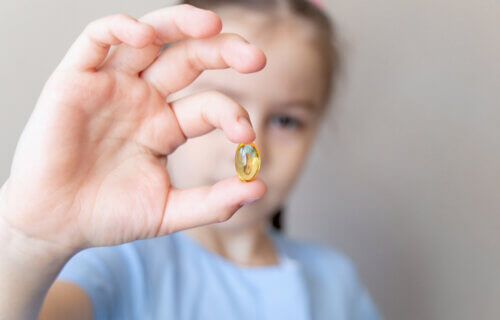LONDON — Vitamin D supplements do not enhance bone strength, nor do they prevent bone fractures in children, a major clinical trial reveals.
Approximately one in three children suffer at least one bone fracture before reaching the age of 18, estimates show. Medical professionals caution that these fractures could lead to prolonged disability and even diminished quality of life.
Consequently, there has been an increasing interest in recent years in the potential benefits of vitamin D supplements for bolstering bone strength or reducing fracture risk in children, considering the vitamin’s role in bone mineralization. However, prior studies have not conclusively investigated these effects.
In response, researchers from Queen Mary University of London and the Harvard T.H. Chan School of Public Health conducted a comprehensive trial. In this study, Mongolian children between six and 13 years-old received a weekly vitamin D supplement over a three-year period. Mongolia was selected for the study due to its high incidence of bone fractures and widespread vitamin D deficiency.
The findings, published in The Lancet Diabetes & Endocrinology, reveal that while the supplements significantly increased vitamin D levels from a deficient state to a normal range, they did not affect fracture risk or bone strength. This outcome challenges the previously held beliefs about the influence of vitamin D on bone health.
The trial, which is the largest randomized controlled trial on vitamin D supplementation in children to date, is expected to prompt scientists, doctors, and public health experts to reevaluate the role of Vitamin D supplements.

“The absence of any effect of sustained, generous vitamin D supplementation on fracture risk or bone strength in vitamin D deficient children is striking. In adults, vitamin D supplementation works best for fracture prevention when calcium is given at the same time – so the fact that we did not offer calcium alongside vitamin D to trial participants may explain the null findings from this study,” explains Dr. Ganmaa Davaasambuu, an associate professor at the Harvard T.H. Chan School of Public Health, in a media release.
“It is also important to note that children who were found to have rickets during screening for the trial were excluded from participation, as it would not have been ethical to offer them placebo (dummy medication). Thus, our findings only have relevance for children with low vitamin D status who have not developed bone complications,” adds Professor Adrian Martineau, lead of the Center for Immunobiology at Queen Mary University of London.
“The importance of adequate vitamin D intake for prevention of rickets should not be ignored, and UK government guidance recommending a daily intake of 400 IU vitamin D remains important and should still be followed.”
You might also be interested in:
- A Dietitian’s Take: How To Get The Most Out Of Your Vitamin D Supplements
- Do multivitamins work? Study concludes supplements a ‘waste of money’ for most people
- Can your bone health impact your risk for dementia?
South West News Service writer Imogen Howse contributed to this report.

